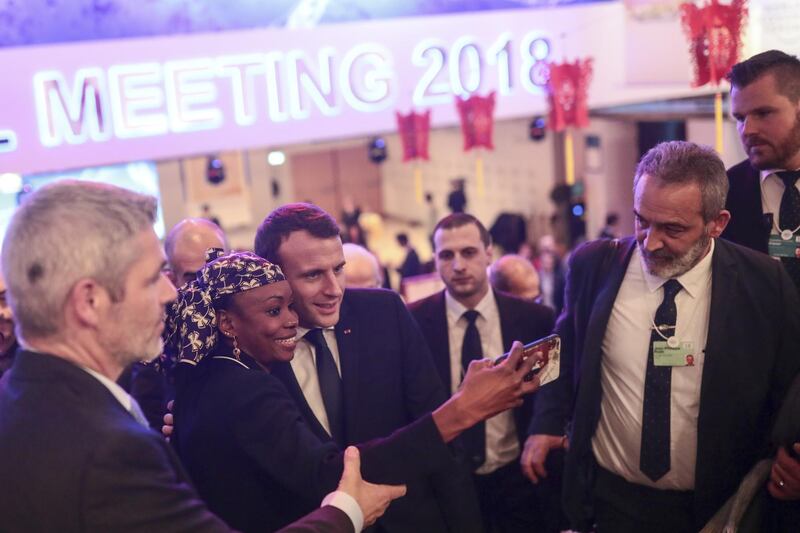Europe’s new power duo Emmanuel Macron and Angela Merkel were hailed on Thursday as defenders of the liberal international order, stepping into a global leadership void created by Britain’s Brexit and Donald Trump’s ‘America First’ policy.
In highly awaited speeches ahead of Mr Trump’s arrival to the elite gathering in Davos, the French and German leaders insisted that while the world faces risks from all sides, populism and tighter borders will only make things worse.
For the elites gathered at the Swiss Alpine resort of Davos, the ‘Merkron’ harmony was music to their ears.
“After Brexit 2016 and Trump 2016 things have changed and someone needs to take the leadership, and the fact that Macron and Merkel are doing that, I welcome it,” Alexander Stubb, Finland’s former prime minister and now vice president of the European Investment Bank, told AFP.
Their stance “gives us more confidence in ourselves, especially for Europeans, because it means that politics is stabilised,” added Lithuania’s president Dalia Grybauskaite.
For The New York Times, Mr Macron in particular “laid claim to the mantle of leader of the free world” with his speech on Wednesday.
The full-throated endorsements of free trade and international rule of law came before the American president closed out the World Economic Forum with his own speech on Friday.
The French leader, quickly dubbed the ‘Darling of Davos’, used his speech Wednesday to urge a new definition of the capitalist order, saying globalisation in its current form was not working as intended and needed recalibrating to stave off populism.
Globalisation “is going through a major crisis” with some states engaging in a free-for-all for their own benefit, Mr Macron said, insisting on the need for “coordinated strategies” across the board.
Mrs Merkel also said the world's problems needed to be addressed with a "multilateral approach”.
“We think that shutting ourselves off, isolating ourselves, will not lead us into a good future. Protectionism is not the answer,” she said.
“I think Macron and Merkel really stole the show in a way, and that’s where Davos is oriented,” Robert Kaplan, a senior fellow at the Center for a New American Security, a Washington think tank, told AFP.
“Yes, people like the fact that markets are high and America has reformed its taxes, but people are very nervous about geopolitics around the world and they are very nervous partially because of Trump,” he said.
The fact that Mr Macron also candidly addressed France’s own challenges in adapting to a globalised world – in smooth English, no less – only reinforced his stature as a global counterweight to Britain and the US.
The French president arrived at Davos having managed to push through labour and tax reforms that had long proved out of reach in France, having won the presidency last year with a pledge to make the country more competitive.
But Mr Macron also urged CEOs to “renounce all-out tax optimisation” strategies, and both he and Merkel have called for harmonised corporate tax rates across the European Union.
“Right now Europe is trying to fill the power vacuum that the United States has left in terms of being the leader of the free world, in terms of being a supporter of international relations, globalisation and the rule of international law,” Mr Stubb said.
“I’m just glad to see that they’re taking leadership."






